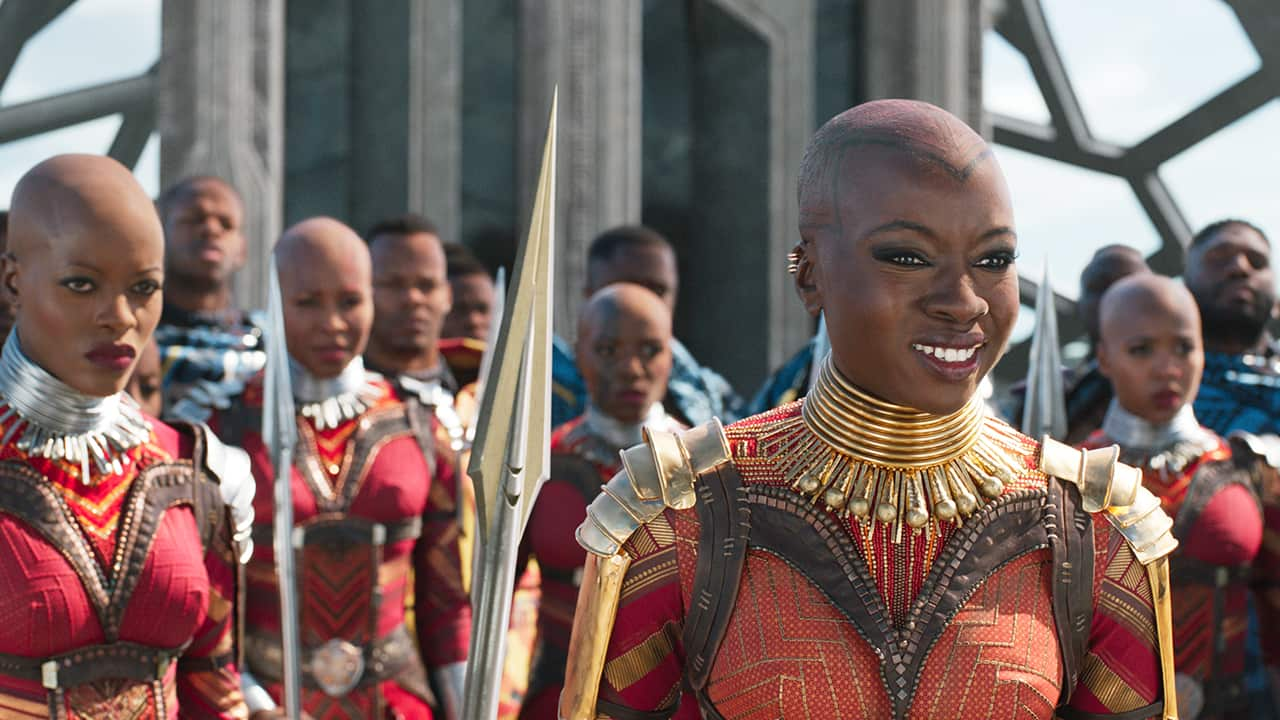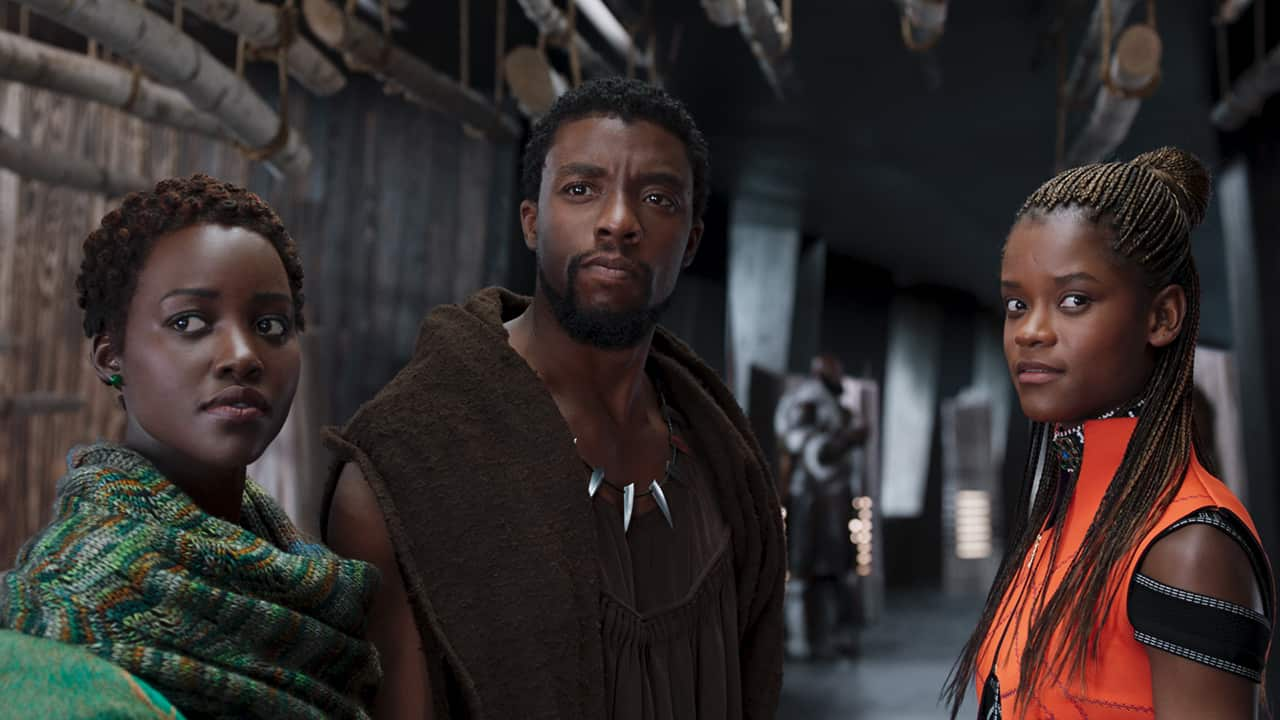What do we want from a superhero movie in 2018? Or, rather, what is fair to ask of a superhero movie?
The best ones are more than spectacle. They’re funny (Iron Man / Spider-Man / Thor: Ragnarok). Maybe they get to some strangely resonant truth about being a superhero and how complicated that might actually be if superheroes actually existed (Captain America: The First Avenger / The Dark Knight / Logan / Wonder Woman).
Sometimes, the best ones are the first ones, bringing classic characters to life in a way that hasn’t been done before (X-Men & X2 / Batman / Superman). Or the ones that take things in a completely new direction (Batman Begins / Captain America: The Winter Soldier).
But none of these franchises have been immune to superhero fatigue. It’s just too hard to keep these heroes saving the world and make it seem new. How much do we care about what’s at stake in these Avengers movies? How invested are we in the plight of the Justice League? Will Ant-Man ever truly achieve work/life balance?
Black Panther arrives in the middle of this heavily mined, fracked and plundered story landscape, led by an action packed trailer featuring Gil Scott-Heron’s seminal 1970 black power anthem, 'The Revolution Will Not Be Televised'. The message is clear: You may have seen superhero movies before, but this is serious. This is political. Kendrick Lamar produced the soundtrack. This is urgent. And yet, for all the (extremely significant) meaning it provides to a culture dominated by white superheroes, it’s actually a fairly standard superhero movie.
After the death of his father in Captain America: Civil War, T’Challa (Chadwick Boseman) becomes king of the fictional African country of Wakanda and assumes the mantle of the Black Panther, the nation’s protector. But thanks to some questionable decisions made by his father, T’Challa finds himself challenged by an American Wakandan (Michael B Jordan) looking to claim his birthright.
Before we go further, let me say that the fact that Black Panther exists is wonderful. As someone who’s incurred the wrath of white nationalists by advocating for a black Spider-Man, it was an unmitigated thrill to watch a non-white superhero jumping around and kicking butt surrounded by a almost completely non-white cast and what seemed to be a more healthy balance of male and female butt-kickers.
It’s almost surprising how noticeable the difference is. Instead of being relegated to side characters like Falcon (Captain America’s friend in the Avengers) or Cyborg (who gets to say “Boo ya” in Justice League), all of the central heroes in this mainstream Hollywood blockbuster are black. That in and of itself is a cultural achievement – not to mention what it might mean for African-American and non-white movie goers (those of us who are not black or white appreciate any splash of colour wherever we can get it). And it moves closer to something resembling equality or some kind of balance in the kinds of heroes we see onscreen, especially if it’s a hit, which is looking likely.
And the performances are very good. Have you seen Chadwick Boseman on a talk show? He’s a really nice, sweet happy-go-lucky seeming type of guy. But as the Black Panther, he brings some serious intensity and a cool charm that was a lot of fun in Civil War and is more fully developed now. He’s also got a tough, incredulous, “Don’t you know who I am?” look that’s pretty great.
Lupita Nyong’o and Danai Gurira, who play Nakia and Okoye respectively, are particularly fierce, especially in their numerous fight scenes, a rarity for women in a superhero movie outside of Wonder Woman. In fact, Okoye is the leader of an intimidating all-female palace guard that’s always ready for action.

All of that is worth cheering for. But when we’re done celebrating what it represents, what we’re left with is a fairly standard superhero movie.
If you enjoyed Black Panther’s exciting introduction in Civil War, where he chases down a car on foot and showcases an energetic fighting style that gives Captain America all he can handle, you’ll get more of that in this movie. The car chases and hand to hand combat sequences are fun, if at times a bit disorienting. Some fight scenes are shot up close and in the dark and it can be hard to tell who’s hitting who. And some sort of battle rhino makes an appearance.
There are some funny moments, with characters like Shuri, T’Challa’s sister (Letitia Wright), and M’Baku, a rival tribal leader (Winston Duke), providing some much needed comic relief. But there are also plenty of super cheesy action movie lines (“Let’s have some fun…” fires weapon), which doesn’t have to matter, but it can have a deflating effect and make a movie feel stale. Also, without giving anything away, there are just too many plot points that feel too similar to things that have happened in previous superhero movies.

And while T’Challa is perfectly likable, there isn’t a whole lot about the character for the audience to latch onto emotionally. We’re not properly invested in his relationship with his father, who we’ve only met very briefly. And his great struggle seems to be over Wakanda’s strict isolationist policies. The superhero origin story has a bad reputation, partially thanks to Spider-Man doing it 35 times, but maybe starting from the beginning might have helped the audience become invested in Black Panther, a character that is not as well known to a broader movie audience. Or if the director Ryan Coogler (Fruitvale Station, Creed) didn’t want to put people through that, maybe he needed to add something in the present to establish the emotional gravity of who Black Panther is and what he means to Africa and the world – and why he does what he does.
Or maybe he didn’t.
This is just the first of probably many Black Panther movies so the franchise may just be taking its time. And maybe it’s enough that this installment hits the right, familiar, beats of a successful superhero movie to satisfy some (all, maybe?) of what the audience is looking for.
By the end of the movie, I was thinking less about what makes it average and more about what makes it special. I was thinking about all the kids who had been told they couldn’t dress up as Batman or Superman because they weren’t white. I thought about my former coworker whose parents named him T’Challa, such was their reverence for the character. I thought about my 7-year-old son, who, until this point, had only white superheroes to look up to – but whose favourite Avenger is now Black Panther. I assume we’ve got a way to go for a Puerto Rican Indian superhero – but maybe we’re a step closer.
Follow the author on Twitter.
